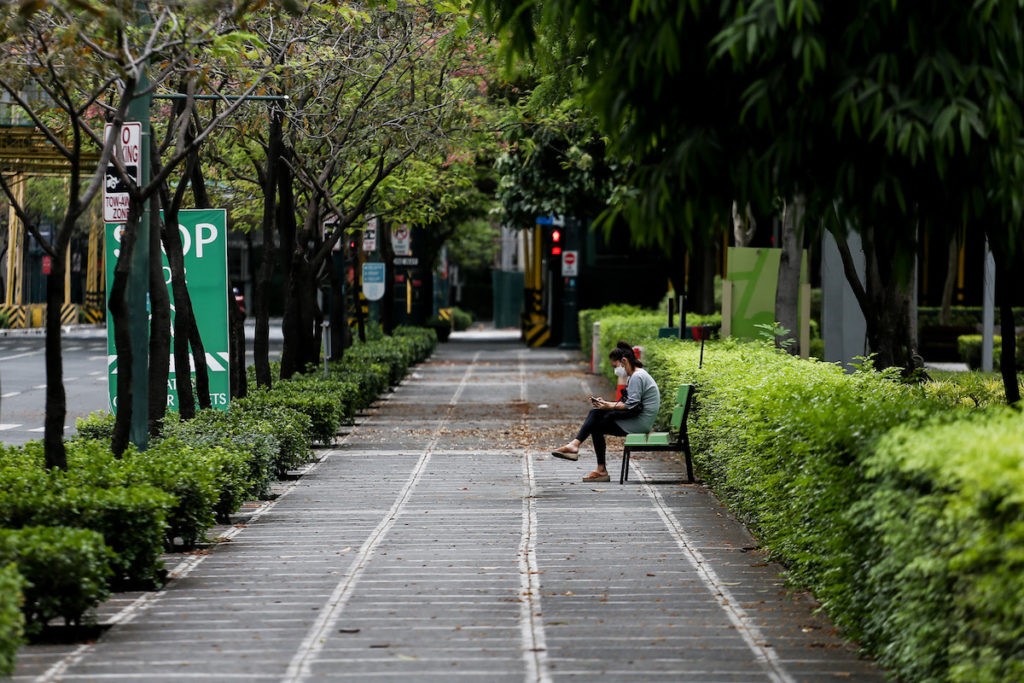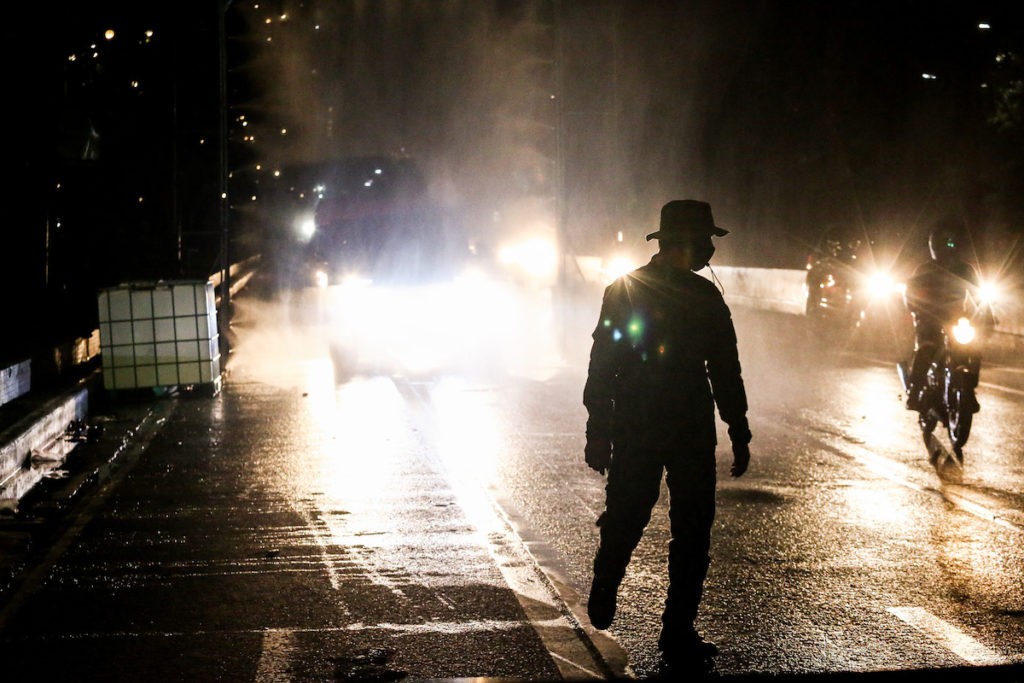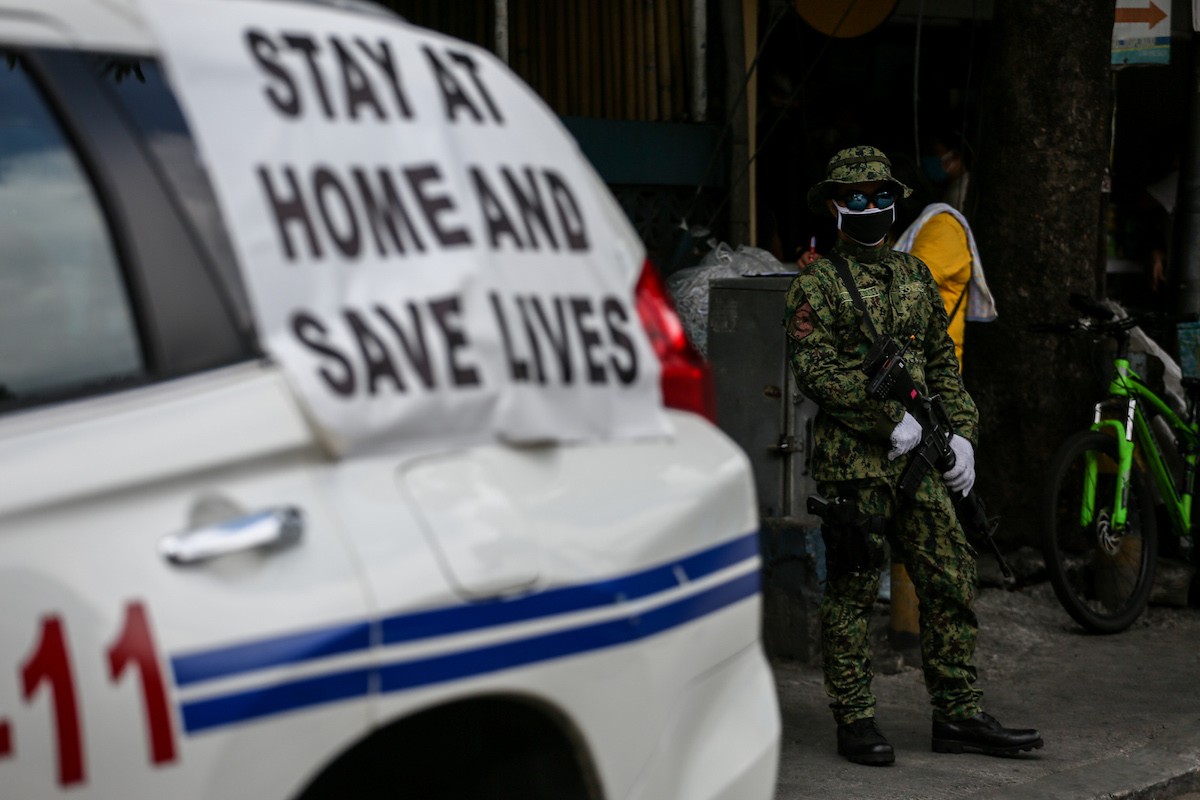In a span of a few months, we have created a solid plethora of abstract notions that reminds us daily of our unseen COVID-19 reality, of our uncertain future, of our fallen graces, of our uncelebrated dead.
Our minds have never ceased to wander and wonder of what tomorrow will look like and what it will bring. Our hearts have never been so anxious to ask if tomorrow will have any genuine meaning.
Battered every hour by grim news that we are in the midst of a world mired to a standstill by a seemingly impotent virus that threatens to bring down civilization as we know it, we can only hope that we will one day see and simply memorialize the dark past of a COVID-war.
Such is the unruliness of our human spirit.
On one lighter note, I ask “have we not been amusing ourselves daily with having learned a fresh covid vocabulary?”
Words that appear to have been firmly injected into our linguistic bloodstream; words that we will be using for a very long time in government policies, in prayers, in pseudo-scientific opinions, in political rants, in jokes and memes; words that may embed themselves into the culture that we intend to recapture in all its neoliberal glory.
To cite some examples, healthcare workers, front-liners, social/physical distancing, PUIs, PUMs, community quarantine (and all its strangely-described variants), lockdown (in all its indistinguishable forms), PPEs, ventilators, social amelioration fund, Bayanihan We-Heal-as-One Act, IATF, checkpoints, temperature scanners, face masks, face shields, test kits, asymptomatic, “flattening the curve,” the “new normal” and so on.
It appears that every human conversation from now on, whether or not it is done virtually, will always be unconsciously located in the COVID-19 context. The more common use of these words in the following months, will betray the presence of a nightmare that refuses to go away.

On a more serious note, I ask now “will we ever change anything in our Philippine society?” Has our forced retreat into our domiciles taught us anything about how we should transform our views concerning the poor? Will the social structures of our limitless pride, the altars of neo-liberalist economics that have contributed to the debilitating poverty of many, disappear?
Will we still continue to have the poor with us? Maybe, if only for the benefit of our “personal sanctification” and our “express lane to heaven,” then we will be “more than happy to still have them around.”
Selfishly, we remark, “No point in learning how to become charitable, if there is no one to give charity to.” Are we really wishing for changes? Should we not be wishing for changes?
What kind of a society are we really praying for in a post-COVID scenario?
Let me tell you about an interesting insight I had in the past week. For the first time in a televised press conference, I witnessed President Rodrigo Duterte — proud and confident Philippine strongman — lamenting and expressing dismay, perhaps a subdued frustration over the limits of government funds, and the dilemma of sustenance if the crisis lasts any longer.
In what was supposed to be a mere report of relief efforts for the poor and an announcement of the quarantine extension, he unexpectedly and candidly expressed the real burden that will make a difference between a country that can or cannot survive the present pandemic: our own poverty as a nation.
For the first time, I found myself on his side. It is truly regrettable that we Filipinos knew what we had to do when it happened, and we knew how to act accordingly.
In prudent promptness, we declared a national emergency, we quarantined our busiest business districts and our most populated areas, we forced our economy to a halt, we encouraged people to stay at home and keep safe, we sent the word out to everyone to try to help each other, we praised our front-liners, and we humbly did everything we could for the sake of our health, in spite of our desperate need for money.
But all of these noble efforts may become useless because of one irritating handicap. All the sincere goodness that we can ever give, is being threatened to be snuffed out simply by our lack of means. We are coming dangerously close to an irreversible failure of all our magnanimous endeavors, simply because we are a poor country.
It seems sad and peculiarly unfair that we in a poor country are determined to save ourselves, but can’t; while those who live in this “rich country” can afford to save themselves, but won’t.

We have seen the vulnerability too many times. A severe lack of hospitals and a severe lack of the capability to rapidly build hospitals. The frustrating shortage of PPEs that claimed the lives of too many doctors in the first weeks of the crisis, that we only managed to solve through so many generous souls.
A government willing to spend its money or probably even willing to bankrupt itself for funds that cannot even serve all. A critical inadequacy of test kits that we had to overcome; and overcame it we did, if it were not for our cheaper local version. The same severe lack of quarantine centers, that we also managed to solve by converting every commercial building imaginable, into patient-monitoring facilities.
But the most painful vulnerability for me is the unforgettable sight of so many of the marginalized. Too many of us are too poor and too hungry to care anymore. Too many of us are at a fragile breaking-point beyond which there can only be rebellion.
We are all trying our best to persuade them to be disciplined enough to help prevent the spread, but who can arrest poor and hungry people who are desperately willing to outweigh the health risks? Their disobedience can literally kill us all, but who can blame them? Who made them poor in the first place?
For all of us who may survive this war, we pray for the emergence of a lasting social justice that will prepare us for the next.
Brother Jess Matias is a professed brother of the Secular Franciscan Order. He serves as minister of the St. Pio of Pietrelcina Fraternity at St. Francis of Assisi Parish in Mandaluyong City, coordinator of the Padre Pio Prayer Groups of the Capuchins in the Philippines and prison counselor and catechist for the Bureau of Jail Management and Penology.The views expressed in this article are the opinions of the author and do not necessarily reflect the editorial stance of LiCAS.news.







